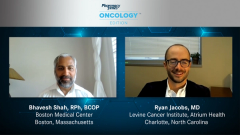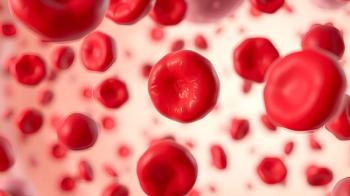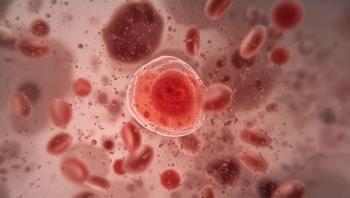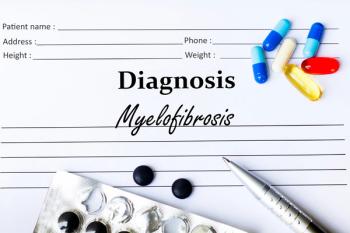
Individualized Treatment Approach for the Management of CLL
Bhavesh Shah, RPh, BCOP, and Ryan Jacobs, MD, share considerations for approaching an individualized treatment regimen for patients with CLL.
Episodes in this series

Bhavesh Shah, RPh, BCOP: Hello, and welcome to the Future Directions of Treatment of CLL [chronic lymphocytic leukemia] with BTK [Bruton tyrosine kinase] inhibitors. My name is Bhavesh Shah. I am the associate chief pharmacy officer for hematology-oncology pharmacy at Boston Medical Center in Boston, Massachusetts. Joining me today in this virtual discussion is my colleague, Dr Ryan Jacobs, who’s an assistant professor of medicine for the Department of Hematology, Lymphoma Division at Levine Cancer Institute and also Atrium Health in Charlotte, North Carolina. Today we’re going to be talking about several topics pertaining to the management of CLL. We will discuss practice patterns and unmet needs that remain regarding treatment of CLL, the potential use of BTK inhibitors in the frontline and beyond, and the critical role that pharmacists play in managing patients with CLL.
Let’s get started. Dr Jacobs, as long as you and I have been practicing, I think I could probably say that we started with chlorambucil and moved up to rituximab [Rituxan] and FCR [fludarabine, cyclophosphamide, rituximab]. Now the landscape has significantly evolved. We’re probably dating ourselves if we’re talking about chlorambucil and fludarabine. We have multiple BTK inhibitors in the market, as well as BCL2 [B-cell lymphoma 2] inhibitors and PI3K [phosphoinositide 3-kinase] inhibitors. The treatment landscape continues to evolve. I think that it’s really great and exciting to have all of these agents and where we are today, and I really kind of wanted to educate a lot of the pharmacists across the country watching this in terms of how you manage CLL and maybe discuss your treatment philosophy. Especially, as the landscape evolves, we see that there are changes in diagnostics and new treatments. For level setting and just starting off, if you have a CLL patient, how do you actually do the workup that you need in order to evaluate further treatments that they would be getting, so kind of the diagnostic? I think we’re probably just focused on stage III and IV, not too deep into CLL.
Ryan Jacobs, MD: Sure. All those changes you mentioned have all come around since 2014, so that’s not a very long period of time. What a great thing for our patients. If I see a new CLL patient that’s symptomatic and is going to need treatment, and that’s going to be about 50% of initial presentations. What I want to do first, beyond the basics of assessing the disease burden, is look a little more specifically at that patient’s CLL so I can make a tailored decision for them, because as we’ll discuss, we have multiple good options. We don’t necessarily always have data to tell us what the best option is out of our choices so we really try to tailor the decision and make a personalized treatment choice through a shared decision-making model, if we can, and come up with the best treatment for our patients. I start with the understanding that not all CLL behaves the same and not all CLL responds to treatment similarly. We, of course, have been able to identify, through specific chromosomal aberrations, different prognostic groups. I follow the iwCLL [International Workshop on Chronic Lymphocytic Leukemia] recommendations prior to starting treatment. I check a FISH [fluorescence in situ hybridization] analysis. I check IgHV [immunoglobulin heavy chain gene] mutational analysis and I check a TP53 [tumor protein p53] mutation analysis.
Transcript Edited for Clarity
Newsletter
Stay informed on drug updates, treatment guidelines, and pharmacy practice trends—subscribe to Pharmacy Times for weekly clinical insights.



























